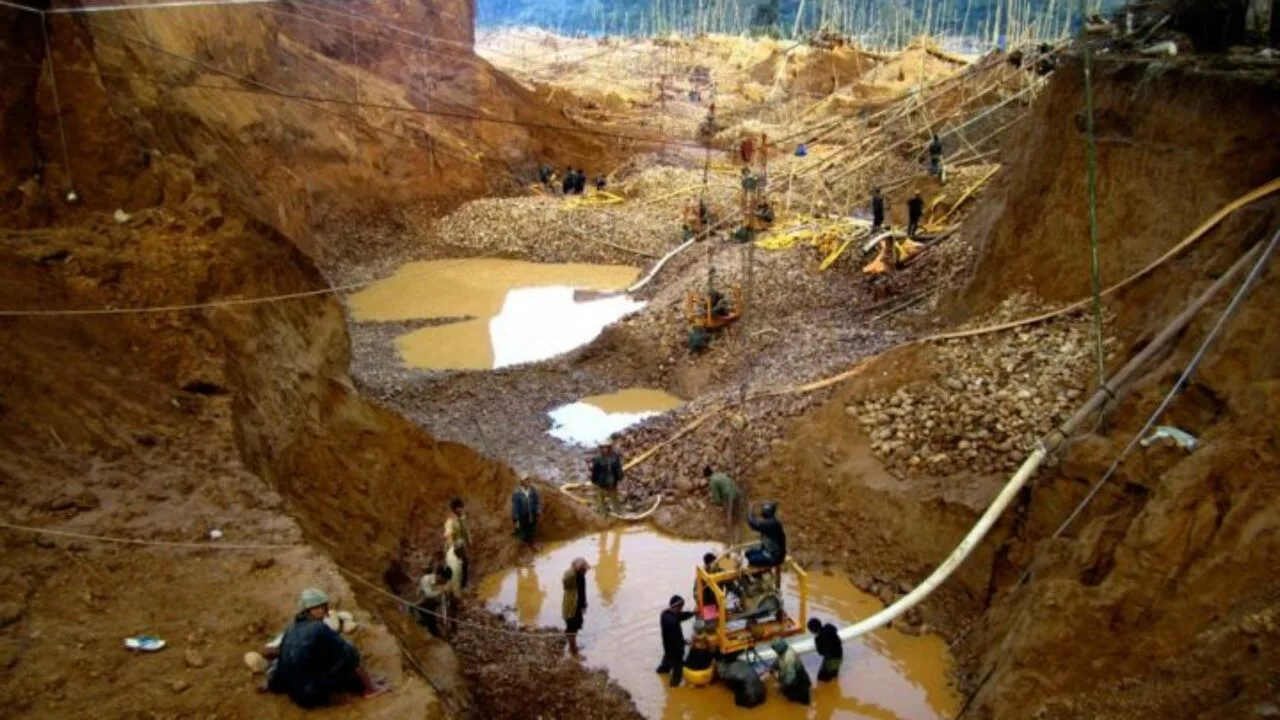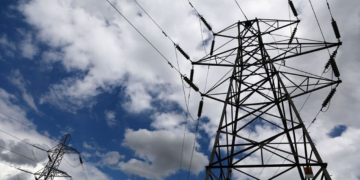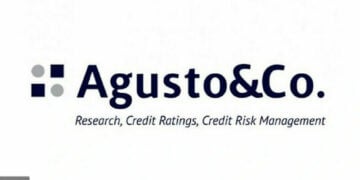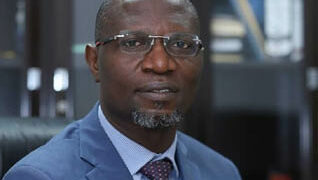The director general of Nigeria Mining Cadastre, Obadiah Nkom has said the office generated N14.59 billion from 2018 to 2022 from issuance of mining licences.
The director general disclosed this to State House correspondents on Thursday during the weekly ministerial briefing organised by the Presidential Communications Team at the presidential Villa, Abuja.
He said that the office revoked 3,402 titles that were not used, adding that the agency makes sure that only the rightful people are given license.
He also disclosed that the Migeria coal is sought after all over the world.
On the revenue generation, he explained that in 2018, 2019 and 2020, the agency generated N1.55 billion, N2.38 billion and N2.57 billion respectively.
However, between 2021 and 2022, its revenue fell from N4.3 billionn to N3.79 billion respectively.
Nkom explained that the revenue drop was due to changes in its internal operating system which temporarily affected revenue inflow.
He said that the introduction of Electronic Mining Cadastre was aimed at repositioning the agency, stressing that subsequently, it was going to have a huge increase in revenue generation.
Nkom, who is the director general in charge of Rights in the Ministry of Mines further said that 100 per cent of the Office’s revenues are sent to the Treasury Single Account, TSA, of the federal government.
He also noted that the bulk of the revenue come from application, processing and annual service fees; which he said constitute 50 per cent of the annual revenue generated from the Federal Ministry of Mines and Steel Development.
President Muhammadu Buhari renewed the appointment of Nkom for a second and final term of four years with effect from January 12, 2023.
Nkom, who was recently reappointed for another period of four years, explained that there are restrictions and conditionalities for the issuance of coal mining licenses in Nigeria.
“We have to be very strategic, and also take into account current global issues. The Mining Cadastre Office does not just issue licenses, we look at the future, issues of sustainability, maximizing value, strategically ensuring Nigeria is properly managing her mineral wealth to achieve maximum economic value and diversification”, he explained.
On the principles of allocation of mining licenses in Nigeria, Nkom said the agency gives priority to ‘first come first served’ and ‘Use it or lose it’.
“How does the system run? Is on use it or lose it basis. We’ve had instances where people receive and get licenses and keep these licenses, and they don’t use them. The law is very, very clear on that. What does that mean? We give you the license.
“If you don’t adhere to the provisions of the Act, you lose it. How do you lose it, you lose it by way of revocation and it’s not arbitrary. We give you a notice of default, for you to be able to remedy the defect, we give you 30 days, in line with the law.
“You can decide to remedy the effect on the 29th day. We are fine with that, but once it is 30 days, and you don’t remedy the defects, then we revoke the title because we know that all these are subjects to litigations”, he said.
“My mandate is simply administration of mineral titles in line with the provisions of the Act establishing the agency. The agency came into being in 2007 with the re-enactment of the Act.
“So, the Nigerian Minerals and Mining Act establish the Nigerian Mining Cadastre Office in 2007 with clear mandates as to administration and management of minerals titles and maintenance of the Cadastre register.”
The essence of that is to ensure that is to ensure that minerals titles are administered and manage in the most transparent manner.
“Revenue Generation is key because we have had to be able to ensure that we improve on it. We had 86 percent increase in revenue from 2001. But I can tell you that with the new system, without mincing words that subsequently we are going to have a steady increase.
“In our revenue generation, it is nothing, but application fees, processing fees and the annual service fee. We are not in charge of other activities like payment of royalties and so on. So, even with these little aspects of revenue components we still want to ensure that at the end of the day our revenue increase and we are able to add to the development of Nigeria and increase the wellbeing of citizens particularly the key components of job creation and revenue, based on our vision for the country,” he said.
The director general said the Cadastre has of recent witnessed an increase in the number of applications for mining permits, due to the transparent nature of the process.
“Among our key accomplishments, is the more you are transparent the more you will be able to see people coming in to submit application. So we have quite an increase in that regard and the increase is not just nationally you have foreign investors getting attracted by way of our transparency, our policies and the way things are being done.
“We have also opened zonal offices, which has taken it closer to the people and the intent of the agency is to be able to ensure that we reduce the number of illegal or informal miners so that at the end of the day, we make licencing easier for them.” he added.
Nkom added that the agency collaborates closely with state governments in order to advice the Minister of Mines and Steel Development on mining matters.
He further said the agency is also looking at the coal sector because of the emergence of coal to power projects to increase energy alternatives for citizens.
Nkom, who holds a Higher National Diploma in Mining Engineering from Kaduna Polytechnic was first appointed on January 12, 2019, for an initial period of four years.
In September 2021, a joint Senate committee working on the 2022-2024 Medium-Term Expenditure and Fiscal Strategy Paper, berated the agency’s boss over poor revenue generation.
The committee argued that the nation was bleeding billions of Naira due to the swelling activities of illegal miners under Nkom’s watch.
In the 12 months that followed, the NMCO revoked 3,400 titles, with plans to revoke more in 2023.











